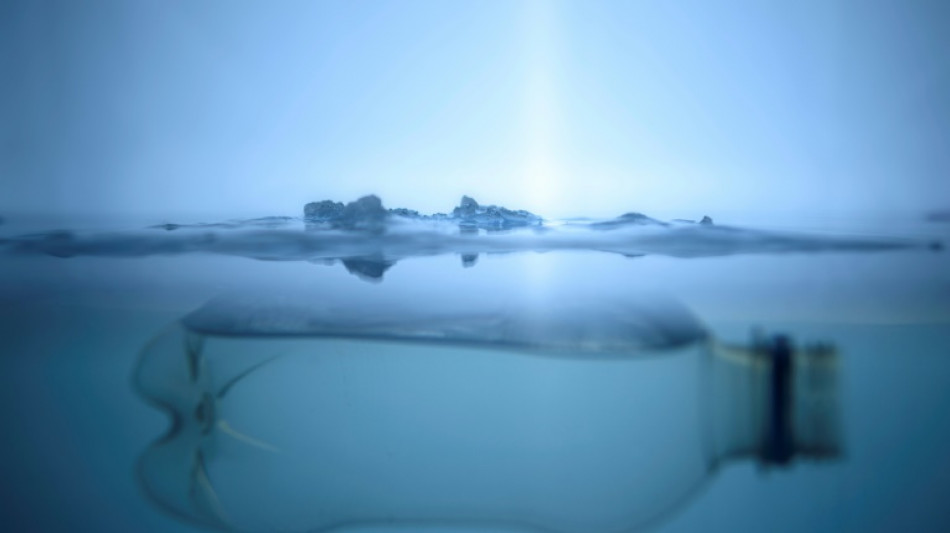

Global plastic pollution treaty talks in a 'haze'
Countries scrambled Thursday to secure a global agreement on tackling plastic pollution as 10-day talks headed towards overtime, with one diplomat saying negotiators were in a "haze" on how to find common ground.
After three years of negotiations, nations wanting bold action to turn the tide on plastic garbage were trying to build last-minute bridges with a group of oil-producing states.
As the hours ticked away, talks chair Luis Vayas Valdivieso was doing the rounds between regional delegations at the United Nations' headquarters in Geneva, trying to stitch together a consensus agreement following a botched attempt on Wednesday.
"We are in a complete haze. We've got the impression something is missing," a diplomatic source in one of the regional delegations told AFP.
The talks are due to end Thursday, and technically a plenary session bringing all 185 negotiating countries together at the UN Palais des Nations must open before midnight (2200 GMT) to be valid.
That meeting, however, has been repeatedly postponed due to deadlock since being first scheduled to start at 1300 GMT.
- Elusive middle ground -
"We need to have a coherent global treaty. We can't do it on our own," said Environment Minister Deborah Barasa of Kenya, a member of the High Ambition Coalition seeking aggressive action on plastic waste.
Barasa told AFP that nations could strike a treaty now, then work out some of the finer details down the line.
"We need to come to a middle ground," she said. "And then we can have a step-wise approach in terms of building up this treaty... and ending plastic pollution."
"We need to leave with the treaty," she added.
Back-to-back regional and cross-regional groups huddled in meetings throughout Thursday.
The High Ambition Coalition, which includes the European Union, Britain and Canada, and many African and Latin American countries, wants to see language on reducing plastic production and the phasing out of toxic chemicals used in plastics.
A cluster of mostly oil-producing states calling themselves the Like-Minded Group -- including Saudi Arabia, Kuwait, Russia, Iran, and Malaysia -- want the treaty to focus primarily on waste management.
One senior Western negotiator, who was among those who skewered the previous draft, told AFP: "It's all up in the air."
- Macron's call to action
The plastic pollution problem is so ubiquitous that microplastics have been found on the highest mountain peaks, in the deepest ocean trench and scattered throughout almost every part of the human body.
On current trends, annual production of fossil-fuel-based plastics will nearly triple by 2060 to 1.2 billion tonnes, while waste will exceed one billion tonnes, according to the Organisation for Economic Cooperation and Development.
With 15 million tonnes of plastic dumped in the ocean every minute, French President Emmanuel Macron asked: "What are we waiting for to act?"
"I urge all states gathered in Geneva to adopt an agreement that truly meets the scale of this environmental and public health emergency," he posted on X.
Vayas, the Ecuadoran politician leading the talks, produced a draft treaty text on Wednesday that was immediately shredded to bits as one country after another branded it unacceptable -- high-ambition and like-minded nations included, with both feeling his attempts at a convergence document was shorn of anything they really wanted.
- Tension as clock ticks -
From here, "it's very simple: there are only two scenarios: there's bad and very bad -- and a lot of ugliness in between," Aleksandar Rankovic from The Common Initiative think-tank told AFP.
"The bad scenario is that countries adopt a very bad treaty. The very bad is that they don't agree on anything, and they either try to reconvene" or the treaty is "kept in limbo for a long time -- so practically abandoned," he said.
Greenpeace delegation chief Graham Forbes told AFP: "It is very tense.
"These final hours are critically important. We need to see meaningful obligations in this text -- and now is the moment to do it."
H.Salazar--GBA

